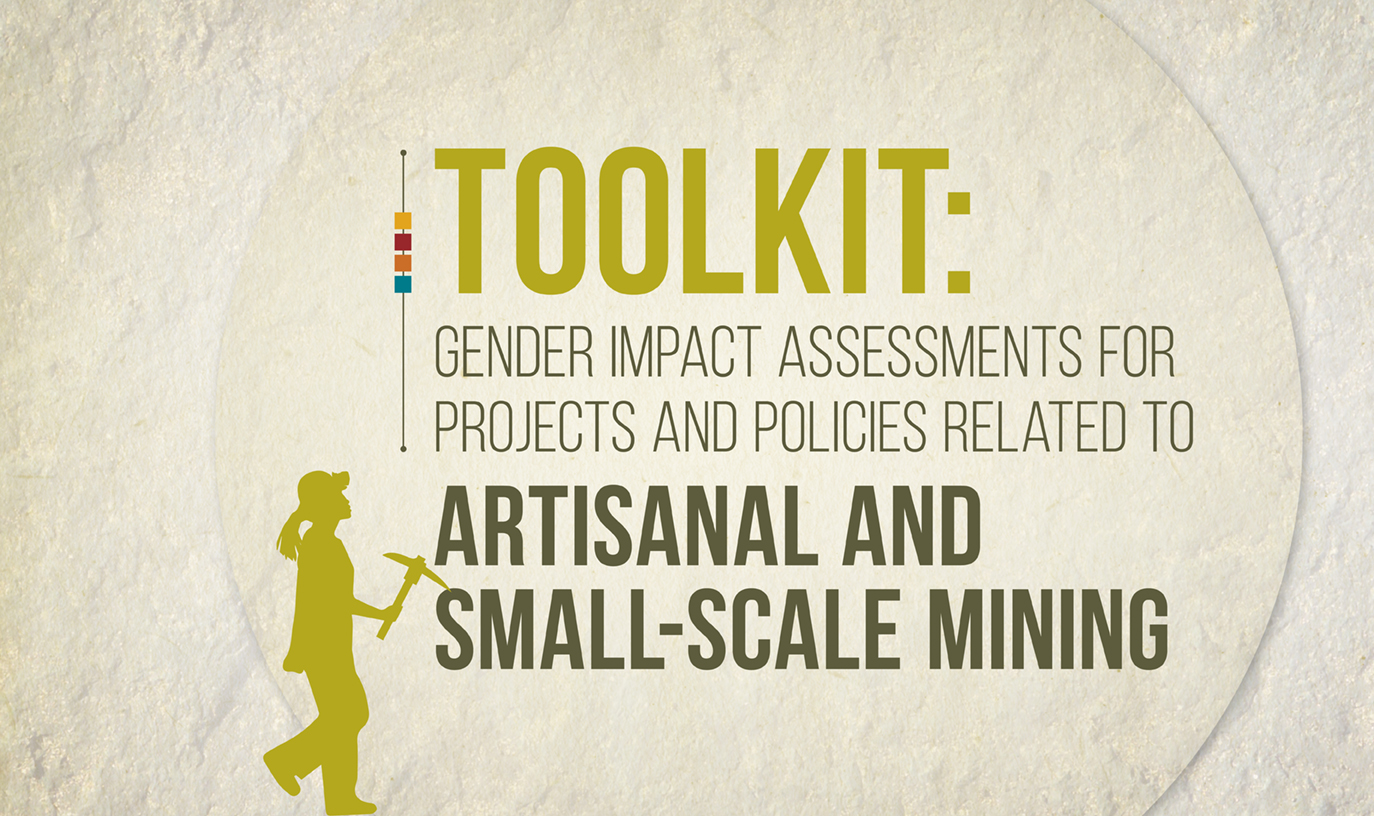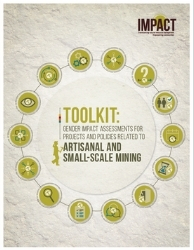Well-intentioned initiatives can negatively impact women miners in artisanal mining communities
Ottawa, Canada—December 8, 2020
Today, IMPACT launches a new resource to better integrate gender equality in initiatives related to artisanal and small-scale mining (ASM) around the world.
Toolkit: Gender Impact Assessments for Projects and Policies Related to Artisanal and Small-Scale Mining was developed as part of IMPACT’s vision for natural resources to benefit all genders equally.
The toolkit was developed over the course of IMPACT’s work in Democratic Republic of Congo and Uganda where the organization, along with its partners, identified gaps in tools available to analyze the impact on women in field-based projects addressing ASM formalization. It is the first ever Gender Impact Assessment to be tailored specifically for the ASM sector.
According to recent data,
approximately 30% of the 42.6 million people engaged in ASM around the world are women.
Through its work on the ground and across all levels of natural resource management around the world, IMPACT and its partners see first-hand the essential role women play in ASM and their great potential as economic and political actors in the sector.
Yet women’s diverse and active participation in ASM is repeatedly ignored.
Women continue to face significant barriers in the sector such as discrimination, gender-based violence, and lack of access to financing and resources. They are often confined to the lowest paying roles and absent from decision making at the mine site and in the community.
A lack of gender sensitive approaches across the sector leaves women vulnerable, particularly in areas where security and human rights are at risk. In some cases, projects or laws that may have good intentions end up intensifying inequality.
“We have learned firsthand how well-intentioned processes to improve how natural resources are managed can lead to unintended negative consequences for women if existing structural inequalities are not acknowledged or factored into current initiatives. They can actually deepen gendered divides,” says Joanne Lebert, IMPACT’s Executive Director.
Use the new Gender Impact Assessment Toolkit to ensure ASM-related initiatives meaningfully help women and gender equality.
By using this toolkit,
teams behind projects and policies designed to improve experiences and outcomes in the ASM sector will be supported in predicting how gender relations will be affected, then determining how to minimize the potentially negative impacts.
“It’s about asking a woman artisanal miner permission to walk in her shoes in order to better understand the day-to-day barriers she faces, which can then be more meaningfully considered in any projects and policies related to artisanal mining. This Gender Impact Assessment Toolkit will guide that process,” adds Lebert.
The toolkit offers 14 strategic tools,
including a Gender Impact Matrix and Gender Equality Continuum, and details seven key steps—from data collection to power mapping—to achieving a comprehensive Gender Impact Assessment for ASM-related initiatives.
The full spectrum of the GIA Toolkit’s application includes ASM-related programs, processes, policies, legislation, laws, interventions, and regulations. Potential users would include civil society, philanthropists, government departments/agencies, and the private sector.
Download the GIA Toolkit here.
Register for our upcoming webinar to learn more:
Women make up 30% of the world’s artisanal mining workforce. Even though governments, donors, NGOs, and the private sector have made pledges to promote women’s participation in the sector, many well-intentioned projects and policies fail to analyze the negative affects they may have on women at the mine site and in the community. Some initiatives ignore the choice women make to work in ASM, while others may fail to acknowledge their limited options outside the sector.
Want to ensure your efforts help advance—not regress—gender equality and the position of women in ASM? Register now to learn how the Toolkit: Gender Impact Assessments for Projects and Policies Related to Artisanal and Small-Scale Mining can be applied to your work.
-30-
Media contact:
Zuzia Danielski
Communications Director, IMPACT
+1-613-237-6768 ext 310 / +1-613-263-0661
zdanielski@impacttransform.org
IMPACT, formerly Partnership Africa Canada, transforms how natural resources are managed in areas where security and human rights are at risk. We investigate and develop approaches for natural resources to improve security, development, and equality. We are an independent non-profit collaborating with local partners for lasting change. www.impacttransform.org



